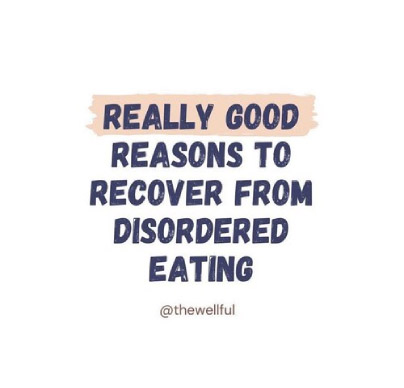Body Dysmorphic Disorder (BDD) is a mental health condition characterized in which people are extremely preoccupied by their appearance, especially with what they perceive to be physical flaws. Also referred to as body dysmorphia, the condition involves people either seeing their bodies (or parts of themselves) characterized by an excessive preoccupation with one’s appearance, particularly with perceived flaws in physical features. This disorder can be extremely distressing and can greatly impact an individual’s quality of life.
Body Image Issues
Before we go into the causes and symptoms of Body Dysmorphic Disorder, it is important to understand the concept of body image issues. Body image refers to how we perceive and feel about our physical appearance. Remember, it’s really not about how you look; it’s about how you feel about how you think you look.
The current world in which we live is riddled with unrealistic beauty standards, which often leads people to be dissatisfied with their appearances and/or develop negative body images. This can range from the occasional negative thought to having body image consume much of their brain space.
These issues are real and can affect people of all genders and ages. The media, societal pressures, and personal experiences all contribute to the development of body image concerns. But Body Dysmorphic Disorder goes into even more than body image issues; it’s that, and then some.
Causes of Body Dysmorphic Disorder (BDD)
Just as with any mental health condition, there are so many things that could cause body dysmorphic disorder. It’s rarely one thing in particular. Some elements that often contribute to people developing BDD include:
- Genetics and Biology
Research suggests that genetics and biology may contribute to the development of Body Dysmorphic Disorder.[1] Certain genetic factors and imbalances in brain chemicals such as serotonin may influence how likely someone is to develop it. Additionally, a family history of BDD or other, similar mental disorders could impact the likelihood of a child developing it.
- Environmental and Sociocultural Influences
Environmental and sociocultural factors can also impact the development of BDD. Growing up in an environment where appearance is heavily emphasized, criticized, or where appearance-related bullying occurs may increase the likelihood of developing Body Dysmorphic Disorder. What’s more, exposure to narrow beauty standards portrayed by the media can contribute to distorted body image perception.
- Psychological and Personality Factors
Psychological and personality factors can play a big part in the development of Body Dysmorphic Disorder. People who identify as “perfectionists” and those who have low self-esteem or a history of childhood trauma may be more susceptible to developing this condition. Also, those with existing anxiety or obsessive-compulsive disorder may have a higher risk of experiencing BDD.
Symptoms of BDD
Body Dysmorphic Disorder is characterized by a range of distressing symptoms related to body image concerns. Keep in mind that these symptoms extend beyond normal insecurities about one’s appearance. Let us explore some common symptoms of BDD:
- Preoccupation with Perceived Flaws
People with BDD often obsessively focus on perceived flaws or aspects their appearance, which may be barely or unable to be noticed by others. This preoccupation can consume a significant amount of time and impair daily functioning. For example, someone with BDD might see a zit on their forehead and could believe that it’s taking over their whole face. They may start to think that the zit is larger than it actually is and that it’s all people see when they look at them. In reality, the zit may be miniscule or even unnoticeable to anyone who wasn’t aware of it before.
- Frequent Mirror Checking or Avoidance
People with BDD tend to either excessively check their appearance in the mirror or may avoid mirrors at all costs. Those who seek out mirrors want it for the temporary relief it provides; those who avoid them are scared of what they might see. Mirror checking provides temporary relief, but it reinforces the obsessive thoughts and compulsive behaviors associated with BDD.
- Comparison to Others
BDD often comes with a tendency to compare your appearance to others; it may involve persistent asking of “how does this make me look?” and “Should I wear this?” or “Do you think this would look better on you/her/someone else?” This constant comparison can lead to feelings of inadequacy and perpetuate the cycle of negative body image and self-esteem.
- Seeking Excessive Reassurance
People with Body Dysmorphic Disorder tend to seek excessive reassurance about their appearance from friends, family, or professionals. Unfortunately, no amount of reassurance seems sufficient because the truth is that no matter how much someone else reassures them of how they look, they need to believe it for themselves.
- Impact on Daily Life
BDD can significantly impact your ability to live life to the fullest. The distressing thoughts and preoccupations associated with body dysmorphic disorder can interfere with work, relationships, social activities, and your overall well-being. Depression, anxiety, and even suicidal ideation may occur in severe cases.
Body Dysmorphic Disorder is a complex and challenging condition that usually requires professional help. It’s not a matter of just thinking your way out of it. This isn’t any fault of your own and it’s nothing to be ashamed of. But you don’t have to live this way. Working with a registered dietitian and therapist offering CBT with experience helping clients with body dysmorphic disorder could be your way to recovery.
Building Positive Relationships with Our Bodies
At The Wellful, we provide support and compassionate person-centered collaborative care for those struggling with body image issues, including body dysmorphic disorder. Our goal is to empower you to develop healthy ways of relating to your body.
With so much misinformation and confusion around ideas of the “perfect body”, it is easy to develop distorted views. We want to cut through the noise and counter messages from diet culture that can negatively impact self-image. Rather than focusing on external appearance, we believe in nourishment from the inside-out – caring for body and soul.
Our services include counseling to identify and adjust unhelpful thought patterns, as well as nutritional therapy support tailored to your unique needs and goals. We meet you where you are on your journey toward body acceptance and self-love.
Contact us today at 925-725-2761 to take the first step or schedule a free 15- minute consultation with Brenna. Rebuilding positive relationships with food and our bodies is challenging but worthwhile work. At The Wellful, no one has to do it alone.
[1]https://www.hopkinsmedicine.org/health/conditions-and-diseases/body-dysmorphic-disorder











